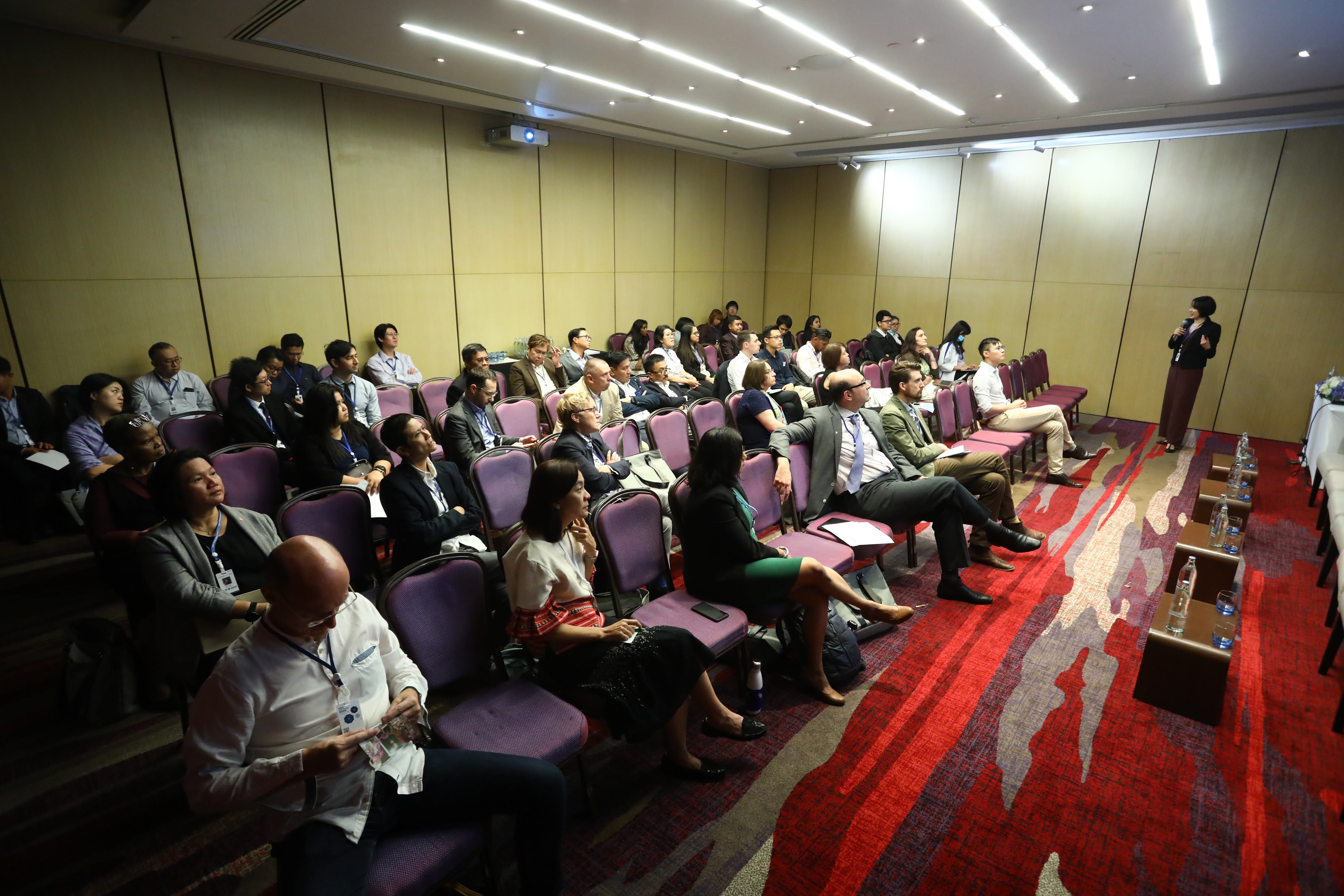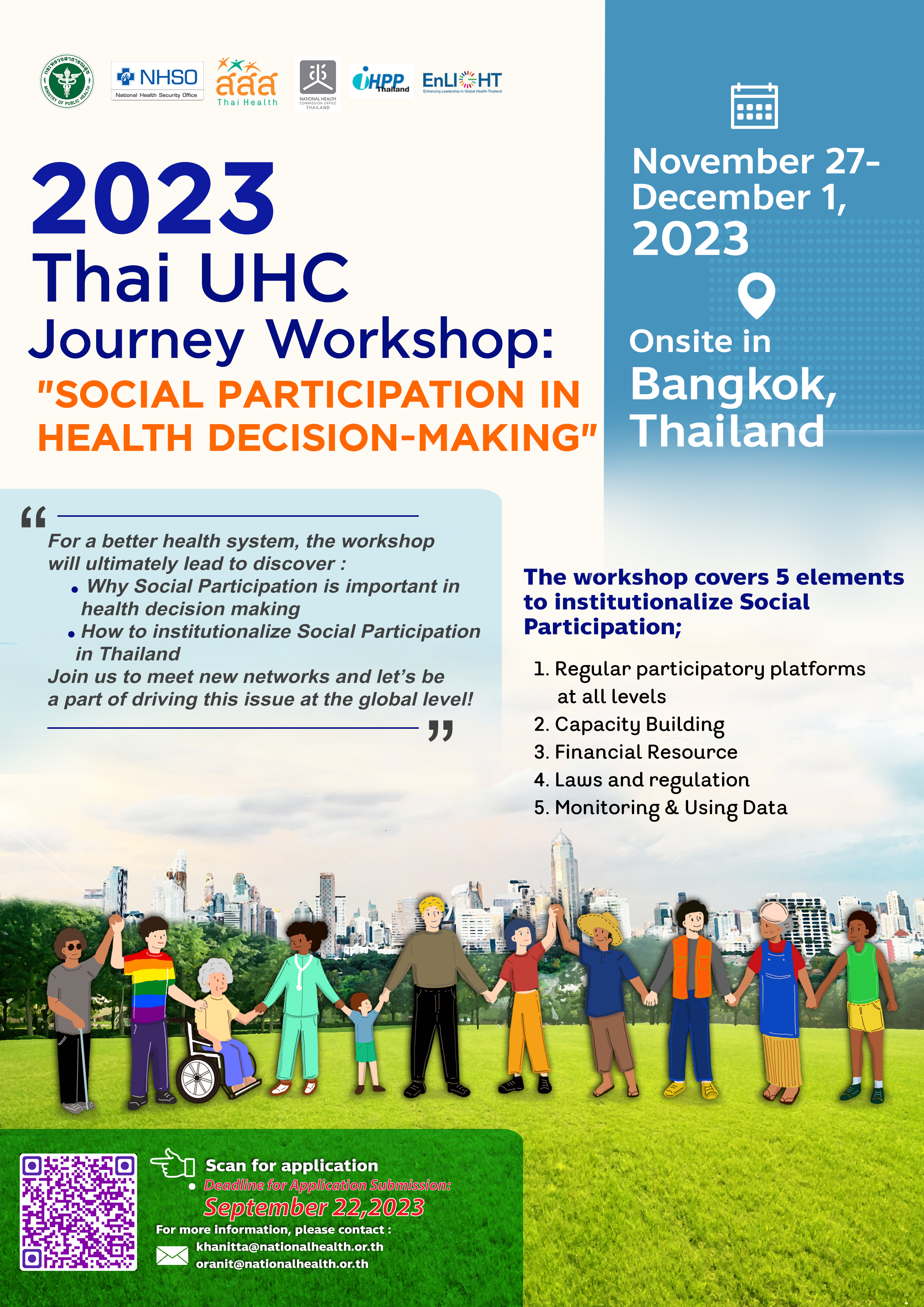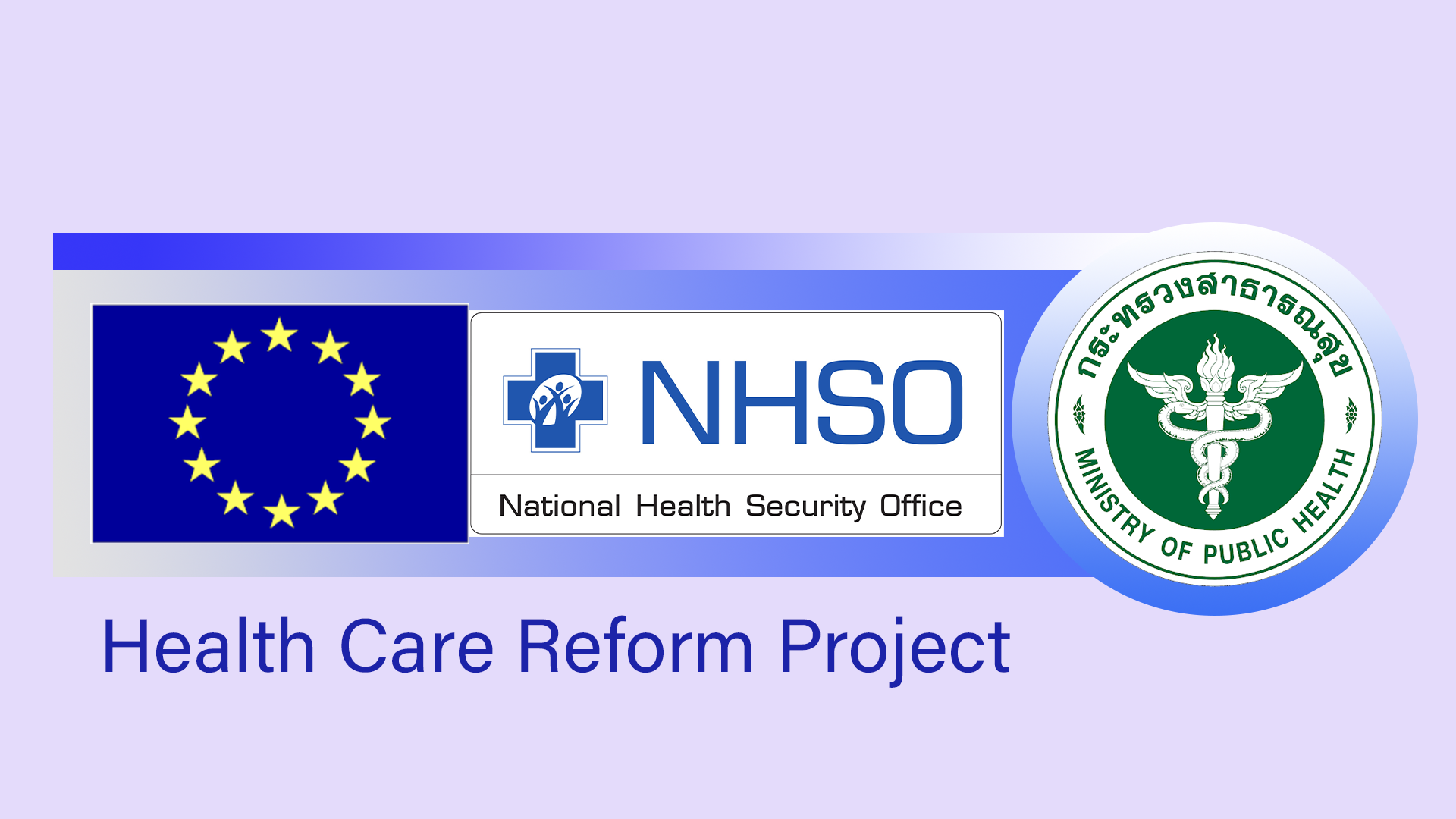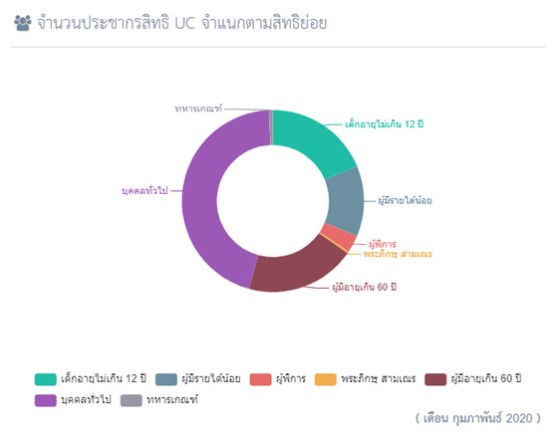UHC needs to address migrant health coverage

31 Jan, 2020—One out of the seven billion world’s populations are on the move. The United Nations predicts that the number of migrants will continue to rise.
People around the world are pushed out of their countries by a number of factors including war, poverty and disaster in seeking better opportunities.
However, healthcare access is left out of a discussion.
During a Tuesday sideline meeting titled “No UHC without migrant health coverage: Leaving no migrant behind” at Prince Mahidol Award 2020, health experts gathered to discuss the situation of migrant workers' access to health services.
Dr Nima Asgari, Director of Asia Pacific Observatory on Health Systems and Policies at the World Health Organization, said that low-skilled migrant workers could not access healthcare services and health insurances in many migrant-receiving and -sending countries.
Point to Asean, migrant-receiving countries such as Brunei and Singapore do not provide public-funded healthcare for migrant workers, who need to rely on private insurance that can be unaffordable.
Though Malaysia and Thailand mandate migrant workers to purchase health insurance, their coverages are limited and insufficient. These countries have introduced Universal Healthcare Coverage (UHC) to citizens. But migrant workers are excluded from the schemes.
Meanwhile, major sending-countries such as Cambodia, Myanmar and Laos do not fund healthcare for their citizens.
Nicola Pocock, a researcher from International Institution of Global Health, United Nations University, said that language barrier was one of the main problems for migrant workers.
Her study on 94 migrant workers and health providers in Malaysia and Thailand shows that poor communication between both parties impact the level of migrant workers’ access to health services and the chance of success in treatment.
Doctors sometimes do not adequately explain migrant works of their severity of illness, said Pocock. Language barriers also make health providers fail to communicate empathy and deliver informed consent which can end up with medical error.
Another study on 44 migrant workers in Malaysia, conducted by Tharani Loganathan, a medical lecturer at University of Malaya’s Faculty of Medicine, found that they don’t want to go to public health services because they will risk of being checked on their immigration documentation.
Migrant workers prefer to go to private clinics and only go to hospitals when they are in bad shape, she said.
In 2011, Malaysia government introduced Foreign Workers Hospitalization and Surgical Insurance (SPIKPA)---the healthcare coverage scheme in which migrant workers are mandated to pay annual premiums to health providers through their employers. But the coverage is limited, not include out-patient benefits that are commonly demanded by migrant workers.
“Even though we have SPIKPA, migrant workers still lack awareness of insurance. Most of migrant don’t have information because they are not given information,” said Loganathan, adding that some health providers feel reluctant to treat migrant workers because they concern of the incurred cost.
Some of them are unwilling to share their resources and facilities because migrant workers are considered the “outsiders” by the immigration policy.
“Health policy needs to separate from immigration policy, and employers should take responsibility for their workers’ health,” said Loganathan “Currently, our social security policy treats citizens and non-citizens unequally.
Nareerut Pudpong of Thailand’s International Health Policy Program suggested that participating migrant workers in health service operations could create benefits for both migrant workers and health providers.
Her research conducted on migrant health workers and migrant health volunteers---working or volunteering as health educators, interpreters and health coordinators---found that their collaboration with Thai health providers increase the level of their health literacy significantly.
The level is higher if they have an education and stay in Thailand longer. On the other hand, health providers benefit from migrant health workers and volunteers by closing a communication gap between doctors and migrant patients. It also increases the capacity of health providers to run health promotion and prevention programs among migrant communities.
“Most of migrant workers prioritize their livelihood over health,” said Alistair Shaw, Senior Program Officer of Raks Thai Foundation. “They come to accept their legal status and not ask for health insurance.”
He suggested that migrant workers should be included in healthcare system of receiving countries. Universal Healthcare Coverage (UHC) could play a role in ending discrimination against migrant workers by providing migrant workers’ access to healthcare services.
Healthcare system needs to change to ensure no migrant is left behind, said Shaw.
That needs engagement of migrant communities in all levels of policy. Some laws and structures must be removed or simplified such as restrictive documentation status and insurance scheme.
“We need to build the capacity of services provider to tailor practice and reduce stigma as a mean of addressing various social, cultural and financial factors that influence an individual’s decision to access healthcare,” he said. /end
………………..31 January 2020
IN DEPTH
UHC needs to address migrant health coverage

31 Jan, 2020—One out of the seven billion world’s populations are on the move. The United Nations predicts that the number of migrants will continue to rise.
People around the world are pushed out of their countries by a number of factors including war, poverty and disaster in seeking better opportunities.
However, healthcare access is left out of a discussion.
During a Tuesday sideline meeting titled “No UHC without migrant health coverage: Leaving no migrant behind” at Prince Mahidol Award 2020, health experts gathered to discuss the situation of migrant workers' access to health services.
Dr Nima Asgari, Director of Asia Pacific Observatory on Health Systems and Policies at the World Health Organization, said that low-skilled migrant workers could not access healthcare services and health insurances in many migrant-receiving and -sending countries.
Point to Asean, migrant-receiving countries such as Brunei and Singapore do not provide public-funded healthcare for migrant workers, who need to rely on private insurance that can be unaffordable.
Though Malaysia and Thailand mandate migrant workers to purchase health insurance, their coverages are limited and insufficient. These countries have introduced Universal Healthcare Coverage (UHC) to citizens. But migrant workers are excluded from the schemes.
Meanwhile, major sending-countries such as Cambodia, Myanmar and Laos do not fund healthcare for their citizens.
Nicola Pocock, a researcher from International Institution of Global Health, United Nations University, said that language barrier was one of the main problems for migrant workers.
Her study on 94 migrant workers and health providers in Malaysia and Thailand shows that poor communication between both parties impact the level of migrant workers’ access to health services and the chance of success in treatment.
Doctors sometimes do not adequately explain migrant works of their severity of illness, said Pocock. Language barriers also make health providers fail to communicate empathy and deliver informed consent which can end up with medical error.
Another study on 44 migrant workers in Malaysia, conducted by Tharani Loganathan, a medical lecturer at University of Malaya’s Faculty of Medicine, found that they don’t want to go to public health services because they will risk of being checked on their immigration documentation.
Migrant workers prefer to go to private clinics and only go to hospitals when they are in bad shape, she said.
In 2011, Malaysia government introduced Foreign Workers Hospitalization and Surgical Insurance (SPIKPA)---the healthcare coverage scheme in which migrant workers are mandated to pay annual premiums to health providers through their employers. But the coverage is limited, not include out-patient benefits that are commonly demanded by migrant workers.
“Even though we have SPIKPA, migrant workers still lack awareness of insurance. Most of migrant don’t have information because they are not given information,” said Loganathan, adding that some health providers feel reluctant to treat migrant workers because they concern of the incurred cost.
Some of them are unwilling to share their resources and facilities because migrant workers are considered the “outsiders” by the immigration policy.
“Health policy needs to separate from immigration policy, and employers should take responsibility for their workers’ health,” said Loganathan “Currently, our social security policy treats citizens and non-citizens unequally.
Nareerut Pudpong of Thailand’s International Health Policy Program suggested that participating migrant workers in health service operations could create benefits for both migrant workers and health providers.
Her research conducted on migrant health workers and migrant health volunteers---working or volunteering as health educators, interpreters and health coordinators---found that their collaboration with Thai health providers increase the level of their health literacy significantly.
The level is higher if they have an education and stay in Thailand longer. On the other hand, health providers benefit from migrant health workers and volunteers by closing a communication gap between doctors and migrant patients. It also increases the capacity of health providers to run health promotion and prevention programs among migrant communities.
“Most of migrant workers prioritize their livelihood over health,” said Alistair Shaw, Senior Program Officer of Raks Thai Foundation. “They come to accept their legal status and not ask for health insurance.”
He suggested that migrant workers should be included in healthcare system of receiving countries. Universal Healthcare Coverage (UHC) could play a role in ending discrimination against migrant workers by providing migrant workers’ access to healthcare services.
Healthcare system needs to change to ensure no migrant is left behind, said Shaw.
That needs engagement of migrant communities in all levels of policy. Some laws and structures must be removed or simplified such as restrictive documentation status and insurance scheme.
“We need to build the capacity of services provider to tailor practice and reduce stigma as a mean of addressing various social, cultural and financial factors that influence an individual’s decision to access healthcare,” he said. /end
………………..31 January 2020
Events
UHC needs to address migrant health coverage

31 Jan, 2020—One out of the seven billion world’s populations are on the move. The United Nations predicts that the number of migrants will continue to rise.
People around the world are pushed out of their countries by a number of factors including war, poverty and disaster in seeking better opportunities.
However, healthcare access is left out of a discussion.
During a Tuesday sideline meeting titled “No UHC without migrant health coverage: Leaving no migrant behind” at Prince Mahidol Award 2020, health experts gathered to discuss the situation of migrant workers' access to health services.
Dr Nima Asgari, Director of Asia Pacific Observatory on Health Systems and Policies at the World Health Organization, said that low-skilled migrant workers could not access healthcare services and health insurances in many migrant-receiving and -sending countries.
Point to Asean, migrant-receiving countries such as Brunei and Singapore do not provide public-funded healthcare for migrant workers, who need to rely on private insurance that can be unaffordable.
Though Malaysia and Thailand mandate migrant workers to purchase health insurance, their coverages are limited and insufficient. These countries have introduced Universal Healthcare Coverage (UHC) to citizens. But migrant workers are excluded from the schemes.
Meanwhile, major sending-countries such as Cambodia, Myanmar and Laos do not fund healthcare for their citizens.
Nicola Pocock, a researcher from International Institution of Global Health, United Nations University, said that language barrier was one of the main problems for migrant workers.
Her study on 94 migrant workers and health providers in Malaysia and Thailand shows that poor communication between both parties impact the level of migrant workers’ access to health services and the chance of success in treatment.
Doctors sometimes do not adequately explain migrant works of their severity of illness, said Pocock. Language barriers also make health providers fail to communicate empathy and deliver informed consent which can end up with medical error.
Another study on 44 migrant workers in Malaysia, conducted by Tharani Loganathan, a medical lecturer at University of Malaya’s Faculty of Medicine, found that they don’t want to go to public health services because they will risk of being checked on their immigration documentation.
Migrant workers prefer to go to private clinics and only go to hospitals when they are in bad shape, she said.
In 2011, Malaysia government introduced Foreign Workers Hospitalization and Surgical Insurance (SPIKPA)---the healthcare coverage scheme in which migrant workers are mandated to pay annual premiums to health providers through their employers. But the coverage is limited, not include out-patient benefits that are commonly demanded by migrant workers.
“Even though we have SPIKPA, migrant workers still lack awareness of insurance. Most of migrant don’t have information because they are not given information,” said Loganathan, adding that some health providers feel reluctant to treat migrant workers because they concern of the incurred cost.
Some of them are unwilling to share their resources and facilities because migrant workers are considered the “outsiders” by the immigration policy.
“Health policy needs to separate from immigration policy, and employers should take responsibility for their workers’ health,” said Loganathan “Currently, our social security policy treats citizens and non-citizens unequally.
Nareerut Pudpong of Thailand’s International Health Policy Program suggested that participating migrant workers in health service operations could create benefits for both migrant workers and health providers.
Her research conducted on migrant health workers and migrant health volunteers---working or volunteering as health educators, interpreters and health coordinators---found that their collaboration with Thai health providers increase the level of their health literacy significantly.
The level is higher if they have an education and stay in Thailand longer. On the other hand, health providers benefit from migrant health workers and volunteers by closing a communication gap between doctors and migrant patients. It also increases the capacity of health providers to run health promotion and prevention programs among migrant communities.
“Most of migrant workers prioritize their livelihood over health,” said Alistair Shaw, Senior Program Officer of Raks Thai Foundation. “They come to accept their legal status and not ask for health insurance.”
He suggested that migrant workers should be included in healthcare system of receiving countries. Universal Healthcare Coverage (UHC) could play a role in ending discrimination against migrant workers by providing migrant workers’ access to healthcare services.
Healthcare system needs to change to ensure no migrant is left behind, said Shaw.
That needs engagement of migrant communities in all levels of policy. Some laws and structures must be removed or simplified such as restrictive documentation status and insurance scheme.
“We need to build the capacity of services provider to tailor practice and reduce stigma as a mean of addressing various social, cultural and financial factors that influence an individual’s decision to access healthcare,” he said. /end
………………..31 January 2020
RESOURCE CENTER
SECRETARY-GENERAL
UHC needs to address migrant health coverage

31 Jan, 2020—One out of the seven billion world’s populations are on the move. The United Nations predicts that the number of migrants will continue to rise.
People around the world are pushed out of their countries by a number of factors including war, poverty and disaster in seeking better opportunities.
However, healthcare access is left out of a discussion.
During a Tuesday sideline meeting titled “No UHC without migrant health coverage: Leaving no migrant behind” at Prince Mahidol Award 2020, health experts gathered to discuss the situation of migrant workers' access to health services.
Dr Nima Asgari, Director of Asia Pacific Observatory on Health Systems and Policies at the World Health Organization, said that low-skilled migrant workers could not access healthcare services and health insurances in many migrant-receiving and -sending countries.
Point to Asean, migrant-receiving countries such as Brunei and Singapore do not provide public-funded healthcare for migrant workers, who need to rely on private insurance that can be unaffordable.
Though Malaysia and Thailand mandate migrant workers to purchase health insurance, their coverages are limited and insufficient. These countries have introduced Universal Healthcare Coverage (UHC) to citizens. But migrant workers are excluded from the schemes.
Meanwhile, major sending-countries such as Cambodia, Myanmar and Laos do not fund healthcare for their citizens.
Nicola Pocock, a researcher from International Institution of Global Health, United Nations University, said that language barrier was one of the main problems for migrant workers.
Her study on 94 migrant workers and health providers in Malaysia and Thailand shows that poor communication between both parties impact the level of migrant workers’ access to health services and the chance of success in treatment.
Doctors sometimes do not adequately explain migrant works of their severity of illness, said Pocock. Language barriers also make health providers fail to communicate empathy and deliver informed consent which can end up with medical error.
Another study on 44 migrant workers in Malaysia, conducted by Tharani Loganathan, a medical lecturer at University of Malaya’s Faculty of Medicine, found that they don’t want to go to public health services because they will risk of being checked on their immigration documentation.
Migrant workers prefer to go to private clinics and only go to hospitals when they are in bad shape, she said.
In 2011, Malaysia government introduced Foreign Workers Hospitalization and Surgical Insurance (SPIKPA)---the healthcare coverage scheme in which migrant workers are mandated to pay annual premiums to health providers through their employers. But the coverage is limited, not include out-patient benefits that are commonly demanded by migrant workers.
“Even though we have SPIKPA, migrant workers still lack awareness of insurance. Most of migrant don’t have information because they are not given information,” said Loganathan, adding that some health providers feel reluctant to treat migrant workers because they concern of the incurred cost.
Some of them are unwilling to share their resources and facilities because migrant workers are considered the “outsiders” by the immigration policy.
“Health policy needs to separate from immigration policy, and employers should take responsibility for their workers’ health,” said Loganathan “Currently, our social security policy treats citizens and non-citizens unequally.
Nareerut Pudpong of Thailand’s International Health Policy Program suggested that participating migrant workers in health service operations could create benefits for both migrant workers and health providers.
Her research conducted on migrant health workers and migrant health volunteers---working or volunteering as health educators, interpreters and health coordinators---found that their collaboration with Thai health providers increase the level of their health literacy significantly.
The level is higher if they have an education and stay in Thailand longer. On the other hand, health providers benefit from migrant health workers and volunteers by closing a communication gap between doctors and migrant patients. It also increases the capacity of health providers to run health promotion and prevention programs among migrant communities.
“Most of migrant workers prioritize their livelihood over health,” said Alistair Shaw, Senior Program Officer of Raks Thai Foundation. “They come to accept their legal status and not ask for health insurance.”
He suggested that migrant workers should be included in healthcare system of receiving countries. Universal Healthcare Coverage (UHC) could play a role in ending discrimination against migrant workers by providing migrant workers’ access to healthcare services.
Healthcare system needs to change to ensure no migrant is left behind, said Shaw.
That needs engagement of migrant communities in all levels of policy. Some laws and structures must be removed or simplified such as restrictive documentation status and insurance scheme.
“We need to build the capacity of services provider to tailor practice and reduce stigma as a mean of addressing various social, cultural and financial factors that influence an individual’s decision to access healthcare,” he said. /end
………………..31 January 2020
VIDEOS
Thailand's UHC Journey
UHC Public relations


















